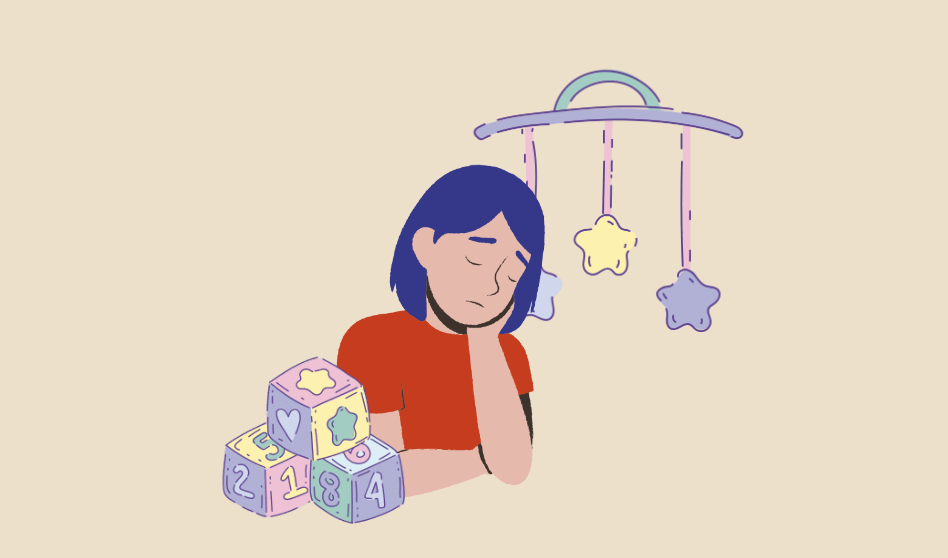When OCD Focuses on Sexuality
The idea of dealing with obsessive-compulsive disorder (OCD) is daunting enough for many people. But when OCD takes on a sexual theme, such as...
2 min read
Ashley Rush, MS, PLPC : Jul 26, 2023 2:10:36 PM

Welcoming a new baby into your life is often a time of joy and excitement, but for some parents, it can also trigger feelings of overwhelming anxiety and fear. Postpartum OCD is a type of OCD that can affect new parents, fathers included. It is characterized by intrusive, unwanted thoughts, also known as obsessions, that often focus on harm coming to the baby, and compulsions, or repetitive behaviors, designed to prevent these imagined harms. These obsessions can take many forms, and the related compulsions are time-consuming and distressing, making it difficult for parents to enjoy their new role. Fortunately, treatments exist that can help parents to manage their anxieties and fears. The gold standard treatment for postpartum OCD (and OCD in general) is exposure and response prevention therapy, or ERP.
ERP is a form of cognitive-behavioral therapy that helps individuals to confront and overcome their fears by gradually exposing them to the things that trigger their obsessions, while working to refrain from performing compulsions or other unwanted behaviors that aim (and fail) to relieve anxiety. In the case of postpartum OCD, the client will work with the therapist to examine their obsessive triggers and functions of their compulsions and make a tailored plan for doing exposure work, both in session and out of session. The therapist will guide the client through these exposures, helping them to stay in the moment and to resist the urge to engage in compulsions, such as checking or rechecking the baby, in response to their obsessions.
Although exposure therapy can sound scary at first, it is a crucial component of recovery, as it helps individuals to learn that they can tolerate uncertainty and are able to handle their feelings. The ultimate goal of ERP is to help the client learn new coping skills and to change their response to their obsessions. Gradually, the client will begin to develop the skills they need to manage their anxiety and regain their ability to lead a full and valued life.
It is important to note that ERP is not a quick fix; it can take time and effort to achieve lasting results. It is important for clients to have patience with themselves and to celebrate the small victories along the way.
Postpartum OCD can be a distressing and isolating condition that can leave new parents feeling overwhelmed and stressed. However, there are effective treatments that can help them overcome their obsessions and compulsions. ERP is considered the gold standard, and it is backed by decades of research as a highly effective form of therapy for OCD. By working with a trained therapist and committing to the process, individuals can develop the skills they need to manage their symptoms and to regain control over their lives. Remember that recovery is a journey, not a destination, and that it is possible to overcome postpartum OCD and to enjoy the joys and challenges of parenthood.

The idea of dealing with obsessive-compulsive disorder (OCD) is daunting enough for many people. But when OCD takes on a sexual theme, such as...

POCD or Pedophilia OCD is a subtype of OCD where the person experiences distressing intrusive and unwanted thoughts or fears that they might become...

Asking for reassurance is a common behavior in people with Obsessive-Compulsive Disorder (OCD) and anxiety disorders. The purpose behind this coping...